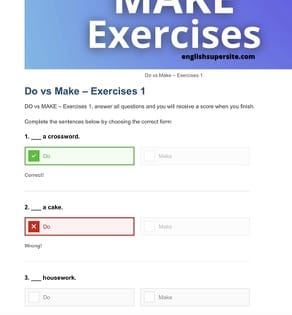
What are The Best Strategies to Learn English?
How can you learn English and retain what you have learned? What are The Best Strategies to Learn English?
How to study and remember all new words and sounds, the spellings, and grammar? How to understand and remember all the rules and exceptions? What to do when you struggle and get frustrated?
These are questions that every language student asks himself or herself.
Discipline and resilience are without a doubt two key factors to learning a new language, however, there are some simple techniques that you can incorporate into your everyday life that will help you learn English not only faster but in an incredibly fun way!
1. Set Goals, Create a Study Plan, and a Tracking Method
Set Goals, Plan and Track! Creating a good strategy is important, planning your studies, will give you meaning to your work and progress. Knowing what you going to study and the steps to get there will help you relax and enjoy your learning.
Set goals and create a Tracking Method that shows you your progress weekly and monthly. Reward yourself when you achieve your goals and review if you did not accomplish what you had planned.
Most importantly, follow your Study Plan and track your progress, like a spreadsheet or even a notebook, where you can keep a daily track of your progress. Don’t give up, be persistent!
2. Get Organized and Schedule Time to Study
Organize your things and materials. Schedule and block your study time in your Calendar and stick to it.
Set aside time to study English every single day. Prepare your material to read and write. Use your Study Plan and schedule time to read, write and do exercises and quizzes every single day. Create a study routine and make it a habit.
Prioritize your studies and make sure that you give yourself enough time for each subject or topic. Determine what’s important to study first and what can wait. This will help you avoid procrastination and stay on track with your goals.
3. Find a Good Place to Study
Find a lovely, peaceful location where you may study without interruptions. a space where you can organize yourself without being disturbed. You’ll require a workspace where you can focus on your studies.
A library would be an excellent place to study without distractions. Most libraries have quiet areas for studying and researching, as well as resources and materials to assist you with your studies. If you prefer a more natural setting, a park or a coffee shop with outdoor seating can be relaxing and provide a change of scenery. Simply be aware of your surroundings and select a location where you will not be easily distracted.
4. Allow Time to Assimilate
Allow yourself time to absorb everything you learned, then review what you learned a few weeks later to ensure you remember all important points and exceptions. Study for no more than 50 minutes at a time, and take frequent breaks to relax.
Keep your mind fresh and focused. During your breaks, consider doing some light physical activity like stretching, walking, or taking deep breaths. This will help you recharge and refocus when you return to your studies. In addition to that, try changing your study environment to keep your mind engaged.
Stick to your study plan and schedule. This will allow you to make the most of your study time while also ensuring that you review and reflect on the material you’ve learned. You can also experiment with different study methods, such as making flashcards, summarizing notes, or teaching the material to someone else. This can help to reinforce your understanding and help you remember the information.
Remember that effective studying takes time, effort, and patience. So, be gentle with yourself, and don’t get discouraged if you don’t see immediate results. Maintain your efforts, and you will eventually reap the benefits of your efforts.
5. Read and write as much as you can in English
While you read, try to write the word in your mind. Do the same thing every time you listen to a word. A great combination is to read a book and listen to its audiobook at the same time. By doing that you will not only improve your reading skills but also your listening and comprehension skills.
Also, try to actively engage with the subject you are reading. In your own words, ask yourself questions about the content, make predictions about what might happen next, and summarize what you have read. This will help you grasp the material better and keep it for a longer period.
You can also experiment with reading distinct types of writings, such as news stories, blogs, fiction books, and non-fiction books. This will expose you to various writing styles and help you expand your vocabulary.
Consider joining a reading club or finding an English-speaking study companion. This might be a terrific method to practice your English and share your knowledge with others. Furthermore, having someone to hold you accountable and encourage you is really beneficial.
You can also start a journal or write emails in English to practice writing.
6. Watch Movies, Series, Documentaries, and TEDs in English
Watch movies in English with or without subtitles in English. Subscribe to a premium provider like Netflix, Amazon, or Apple.
Watching movies is one of the greatest things you can do to improve your vocabulary, listening, and comprehension and still have lots of fun.
It’s also a good idea to watch movies and watch TV shows that are suited to your English level. Begin with the easiest material and progress to more difficult topics as you improve.
Attempt to actively participate in the content you’re watching. Take notes on new words, terms, and new phrases, pause the movie to look up unfamiliar words, and try to summarize what you’ve seen in your own words. You can also try to mimic movie dialogue and practice speaking English.
Watch movies and television shows with a buddy or study partner to make it more enjoyable and participatory. You can talk about what you’ve seen and compare your knowledge of the content.
7. Listen to Music and Podcasts in English
Music is a good way to learn new words, even though sometimes lyrics are grammatically incorrect, listening to songs in English will give you a great opportunity to learn new words and sentences.
Listening to English music can be a fun and interesting way to learn new vocabulary and become familiar with the language’s rhythms and patterns. While listening to your favorite music, make sure to read the lyrics, it will greatly improve your understanding of the meaning of the words and how they are used in context.
Podcasts are also a wonderful way to improve your English listening and comprehension skills. Subscribing to English-language podcasts allows you to be exposed to a wide range of topics and dialects, as well as learn new vocabulary and idioms in a natural, conversational situation. You can also pause and rewind, as well as look up unfamiliar words, to help you deepen your understanding of the language.
You can also practice Listening here!
8. Live in English
Try to speak, read and write in English. In short, try to live in English as much as you can in order not to lose your speed of thought.
Immersion in the language through speaking, reading, and writing in English can help you become more confident and fluent. Do not translate in your mind. It’s essential to push yourself and try to think in English rather than translate in your head. The more you use English, the more comfortable you’ll become with it.
9. Study Grammar
Study grammar each and every day. It is a crucial part of improving your English skills. You can speak more effectively and confidently if you understand the rules and structure of the language. You can begin by concentrating on one part of grammar, such as verb tenses or sentence structure, and then practicing using it in your writing and speaking.
Reading and analyzing samples of well-written English text can also help you understand how grammar is used in context. Regular practice and review will help in reinforcing your learning and improving your general writing abilities.
10. Use a good dictionary
Install a Monolingual (English only) dictionary on your Computer, Smartphone, and Tablet. Refer to this dictionary every time you encounter a new word and study that word.
A good dictionary is an incredible resource for anyone learning English. A monolingual English dictionary can help you understand a new word and how it is used in context by providing definitions, synonyms, and examples of usage.
You can increase your vocabulary and improve your ability to understand and use the language by actively looking up and studying new words. Incorporating new words into your daily speech and writing can also help to strengthen your memory and make the words a permanent part of your vocabulary.
Having a good dictionary always ready to use, will allow you to quickly broaden your knowledge and improve your English skills in a time-efficient and convenient manner.
Once you learn and understand the usage of a new word, try to use it as much as possible for the next few days. Look for ways to incorporate it into your daily vocabulary.
11. Cut Some Slack and Reward yourself
Be easy on yourself. Learning a new language can be very frustrating sometimes. If you make a mistake, pay close attention to what you did wrong, correct it, and move forward.
When learning a new language, it is important to be patient with oneself. Language learning is a challenging process that takes time, patience, and effort. It is inevitable to make mistakes and feel frustrated at times, but these setbacks should not discourage you.
Instead, concentrate on your progress and appreciate your victories, no matter how minor. You can give yourself rewards for achieving specific goals, such as learning a new grammar rule or improving your vocabulary.
It is also critical to maintain a positive mindset and to be kind to yourself. Learning a new language is a personal adventure that each person does at their own pace. The most essential thing is to continue practicing and giving it your all.
With time and effort, you will see your English skills improve and you will feel proud of your progress.
12. Review
You must review what you have studied to assimilate. Review your notes and the important topics that you have studied. Review the words and meanings that you learned.
Use and practice what you have studied regularly as soon as possible.
Use The Best Strategies to Learn English in your everyday life to achieve fluency and proficiency in English.
Words to remember:
Incorporate: include, take in or contain something.
Subtitles: captions displayed at the bottom of the screen that translates or transcribes the dialogue or narrative.
Encounter: an unexpected or casual meeting with someone or something.
Study Also:
Abbreviations Adjectives Adverbs Articles Career Comparative Confusing Words Conjunctions Exercises Future Continuous Future Perfect Future Perfect Continuous Grammar Interjections Irregular Verbs Learn English Linking Words Listening Exercises Mistakes Nouns Past Continuous Past Perfect Past Perfect Continuous Plural Prepositions Present Continuous Present Perfect Present Perfect Continuous Pronouns Pronunciation Question Tags Quiz Quotes Reading Simple Future Simple Past Simple Present Spelling Strategies Superlative Tests Transition Words Verbs Verb Tenses Vocabulary
Share with your friends!










